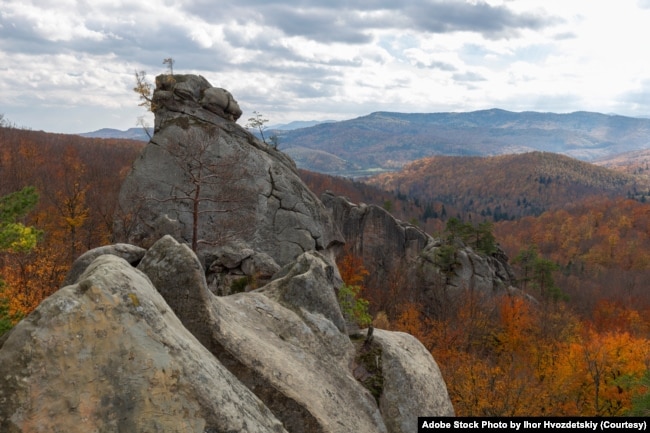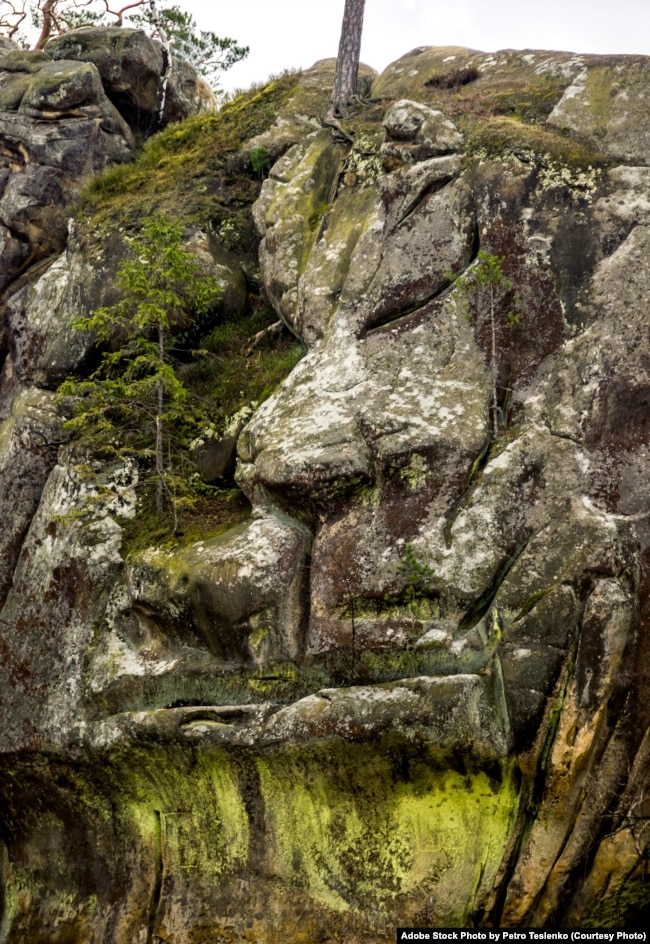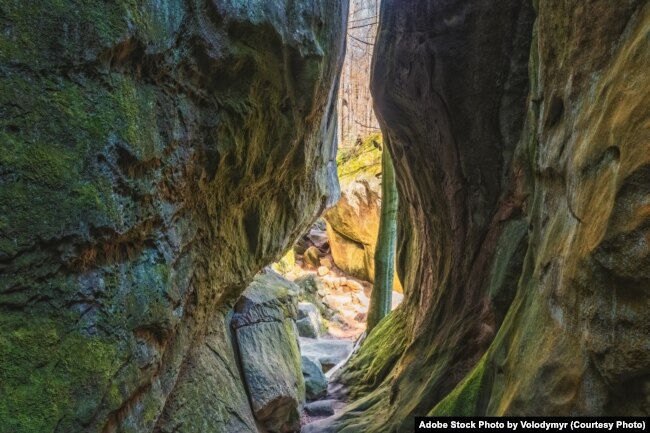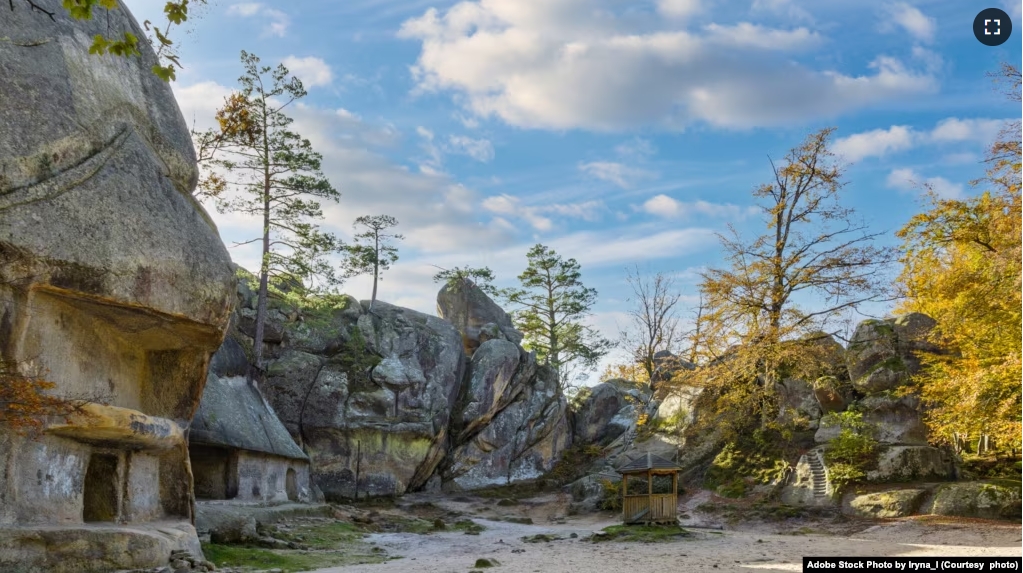Editor’s note: This story is one of the winning entries from the “Teach Us about Ukraine” writing contest sponsored by VOA Learning English and GoGlobal.
Hello everyone. My name is Natalia Lavryk. I am an English teacher from Ukraine. I would like to introduce you to my country—its beautiful nature and very hard-working and friendly people, who most of all want peace, freedom, and independence.
As the world watches Ukraine’s fight for freedom, its soldiers have become a symbol of unbreakable resistance. For Ukrainians, nothing represents that spirit more than the giant stones in the Carpathian Mountains called Dovbush Rocks.
Located on the border of Ivano-Frankivsk and Lviv areas, Dovbush Rocks covers about 100 hectares. The website vidviday.ua says the volcanic giant stones once rested at the bottom of the ancient sea. They are now surrounded by green forests. Named a national monument in 1981, they are seen as a “place of power” and are popular with visitors seeking a mystical experience.

The rocks are named after Oleksa Dovbush, a Robin Hood-like figure, who used them as a hideout in the 18th century. As a leader of a group of rebels, he fought against the oppressive forces that ruled the area. The rocky terrain, with its numerous caves and narrow passages, provided the perfect refuge for Dovbush and his followers.
Ancient storytellers said that Oleksa was killed by the husband of his former lover Dzvinka, who turned into a rock for her betrayal. And Oleksa’s body was dismembered and spread throughout the mountains.
Visiting Dovbush Rocks
Last summer I visited this mysterious place with my students from the Lyceum of Otyniia, a school for students ages six to 17. The energy of this place is impossible to forget. We felt there was a special force that inspired us to do great things and build our inner strength.
The path through the cave is so narrow that, at times, it may seem that there is no way out. In some places, the distance between the rocks is very narrow, only 20 to 30 centimeters wide. In the caves between the rocks, it gets darker and you can hear the rustling of bats’ wings and the echo of dripping water.

Above the cave is an unusual rock in the image of a lion. Visitors can climb on top of the lion to see the beautiful view of Prykarpattia and look for their hopes and dreams on a “wishing stone.”
According to folk legend, the lion is there to guard Dovbush’s buried treasure which no one has been able to find yet. It is said that after Dovbush’s death, his fellow rebels hid gold taken from tavern keepers and merchants in the Odynets cave. The entry to the cave is covered by a rotating stone. One needs to say a magic word to turn the stone and open a passage to the cave. The person who knew that magic word died long ago. So the gold has been lying under the rock for more than a hundred years.

Another mysterious place is Devil’s Gorge. Only 20 centimeters wide, the gorge is difficult to get through. People put a lot of effort into getting through this narrow gap because, as legend has it, they could be set free of sin.
For Ukrainians, Dovbush Rocks represents both the power of nature and the resilience of the human spirit. The rock formation inspires us to rethink our place in nature, and our culture and history. It is a beautiful place where everyone should experience all its magic for themselves.
I’m Andrew Smith. And I’m Jill Robbins.
______________________________________________

About the writer
Nataliia Lavryk is an English teacher at the Lyceum of Otyniia in the Ivano-Frankivsk region, Ukraine. Growing up in a family of educators, she always knew she wanted to follow in their footsteps. Nataliia was born in the village of Zakrivtsi, and after completing her education, she began her career as a teacher. Passionate about helping students learn and grow, she continues to inspire and support her students in their English language studies.
What do you think of this story? Please let us know in the comments.
